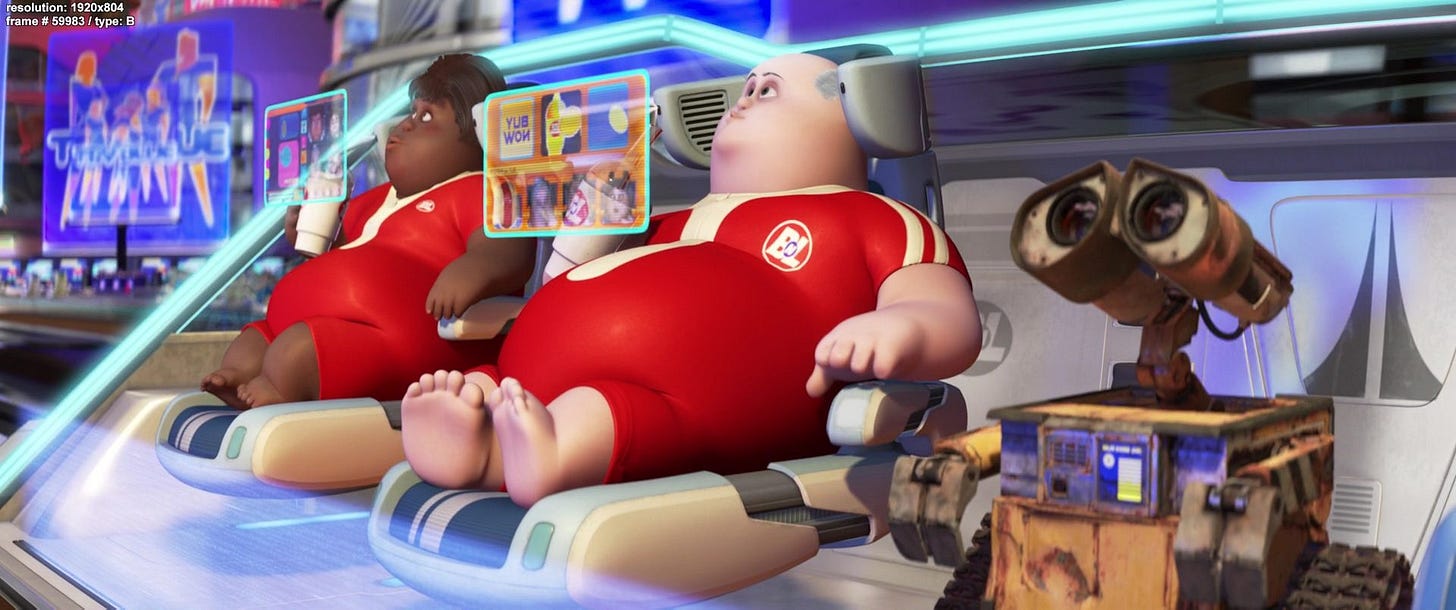What you need to know about AI 🤖
The most important AI topics, visually explained
Happy new year friends 👋
I haven’t sent this newsletter since November because of the fascinating phenomenon I was witnessing in the AI discourse online. It seems like things are only moving faster, companies are racing and inflating expectations on what AI can do, thought leaders are giving reckless advice, and people are more worried and anxious than ever. The divide between “pro-AI” and “anti-AI” camps is only growing.
I see you and I hear you. Something feels wrong.
Whether you’re an office worker, artist, teacher, or a business owner, you’ve probably asked yourself how AI will affect your life, work, or industry as a whole. I’ve asked myself that question a lot and I’m still trying to figure out the answers.
My guiding belief is that AI should only be used to augment people and not replace or harm them. Idealistic, I know. But nobody wants a future where we’re all like the Axiom Humans in WALL-E.
The future is by design, so we need to ask ourselves: what kind of future do we want?
In my introductory Substack post from September 2021, I wrote:
We all design the future with our decisions, no matter how small.
We design the future through the companies we invest our time and money in, technologies we accept or reject, the products we buy, the way we treat others, the way we educate, the information we share...
How can we all make the right decisions when we’re not equipped with the right knowledge and are only getting bombarded with noise and sensationalism?
The “AI literacy” gap is real, and it’s not just about knowing every AI tool or prompt engineering technique. It’s about understanding the first principles of AI. Just like we need to build financial literacy to make better decisions about our money.
We cannot design or control what we don’t understand. To minimize AI’s risks and maximize its benefits, we need to be equipped with the right knowledge, mental models, and language to make these critical decisions about our life and work responsibly. AI literacy also acts as a social safeguard for us against misinformation, deceptive advertising, and other harms.
For that reason, I’ve decided to go back to where it all started with Year 2049: comics and visuals that communicate facts and nuance.
I’ve been working hard on a 7-part illustrated video series called “What you need to know about AI”. It’s my attempt at demystifying how AI works and its capabilities, help you recognize how AI is being applied to systems all around you, and its serious problems like bias and energy use.
For the next 7 days, you’ll receive one short video explaining the following concepts:
The types of AI
How machines learn
How AI becomes biased
How AI generates text
How AI generates images
The energy cost of AI
A brief history of AI
I plan on expanding and updating this series over time with more content. If you have any requests, please share them in the comments or by replying to this email.
My promise to you is that it won’t be a waste of time.
See you tomorrow,
Fawzi





